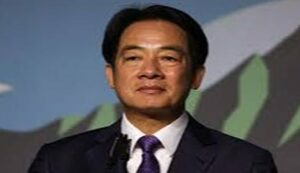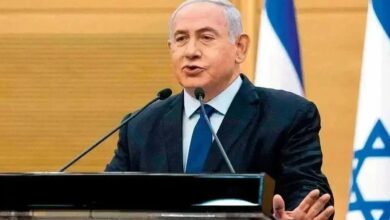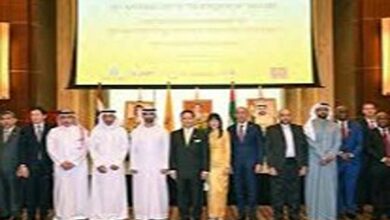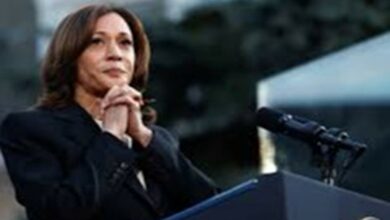Taiwan’s President Lai Ching-te vows to “resist takeover” of self-ruled island
Taiwan: President Lai Ching-te of Taiwan promised on Thursday, October 10, to “resist annexation” in response to China’s increasing political and military pressure on the self-governing island it claims as a part of its territory. Lai and his administration are opposed to China‘s use of force, but China has not ruled out using it to subjugate the democratic island.

During Taiwan’s National Day festivities, Lai said, “I will also uphold the commitment to resist annexation or encroachment upon our sovereignty,” standing in front of the Presidential Office amid overcast skies.
Since Lai entered office in May, ties between Taiwan and Beijing have remained tight as Beijing has increased pressure on Taiwan to recognize its claims to sovereignty.
According to a top US administration official, China may use this year’s National Day festivities “as a pretext” for military drills.
Beijing refers to Lai as a “separatist” because he has been vocal in protecting Taiwan’s sovereignty, unlike his predecessor Tsai Ing-wen.
Beijing warned on Tuesday that Lai had “malicious intent to escalate hostility and confrontation” after his declaration that Taiwan’s “motherland” was not China.
Wen-Ti Sung, a nonresident fellow at the Atlantic Council’s Global China Hub, said that Lai was expected to “project predictability and pragmatism” in his first National Day address, regardless of his position on Taiwan’s sovereignty.
Three US Congress members and high-ranking representatives from a few of the 12 states that have diplomatic ties with Taiwan were among the foreign attendees scheduled for the event.
Despite moving its diplomatic recognition from Taipei to Beijing in 1979, the US continues to be Taiwan’s most significant ally and source of arms.
Washington is against China’s attempts to annex Taiwan and supports Taiwan’s independence.
The 113th anniversary of the fall of the Qing dynasty in China and the subsequent establishment of the Republic of China is being commemorated on Thursday.
The ongoing conflict between China and Taiwan has its roots in a civil war that pitted Mao Zedong’s communist troops against Chiang Kai-shek’s nationalist forces.
After the communists beat the nationalists in 1949, they retreated to Taiwan.
The official name of Taiwan is still the Republic of China.
Although Taiwan has its own military, government, and currency, China has reduced the number of nations that acknowledge Taiwan’s claim to independence.
Taiwan is on alert
According to a senior security source who spoke to AFP on Wednesday, Taiwan was on high alert for Chinese military exercises close to the island on National Day after seeing “some maritime deployments”.
China has conducted three rounds of large-scale war simulations in the last two years, using ships and planes to surround the island. China also maintains a near-daily military presence around Taiwan.
The senior US administration source told reporters, “We are prepared that Beijing may choose to use this as a pretext this year, even though we have not seen significant military activity or exercises following previous 10/10 speeches.”
“We don’t see any reason why an ordinary yearly festival should be used in this way. We believe that coercive measures such as these against Taiwan and in the context of cross-Strait damage cross-Strait stability.”
Taiwan’s defense ministry said on Thursday that throughout the course of the day till six in the morning, 27 Chinese military aircraft and nine naval vessels were seen near the island.
“Lai will signal to Beijing that Taiwan’s door is always open and that the Lai government stands ready to hold dialogue with Beijing, so long as the cross-strait dialogue can take place on the basis of equality and mutual respect rather than on terms unilaterally dictated to by Beijing alone,” Sung, director of the Atlantic Council, told AFP.
Following Tsai’s ascent to power in 2016, Beijing cut off high-level contacts with Taiwan. Tsai is a member of the Democratic Progressive Party of Lai.





